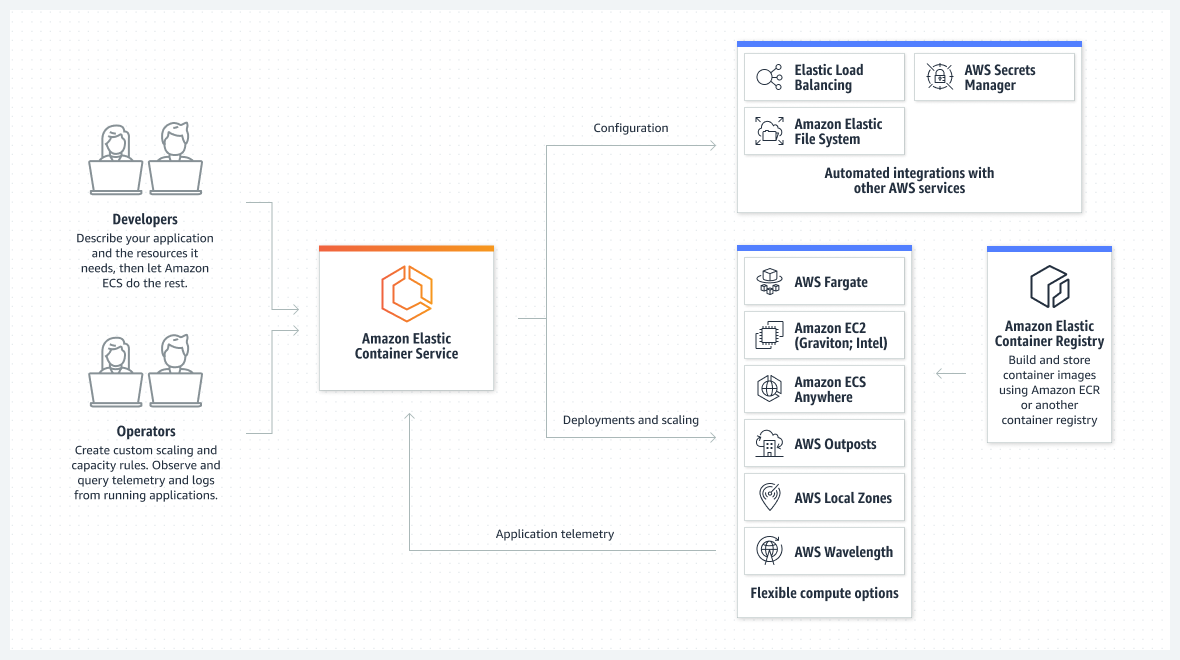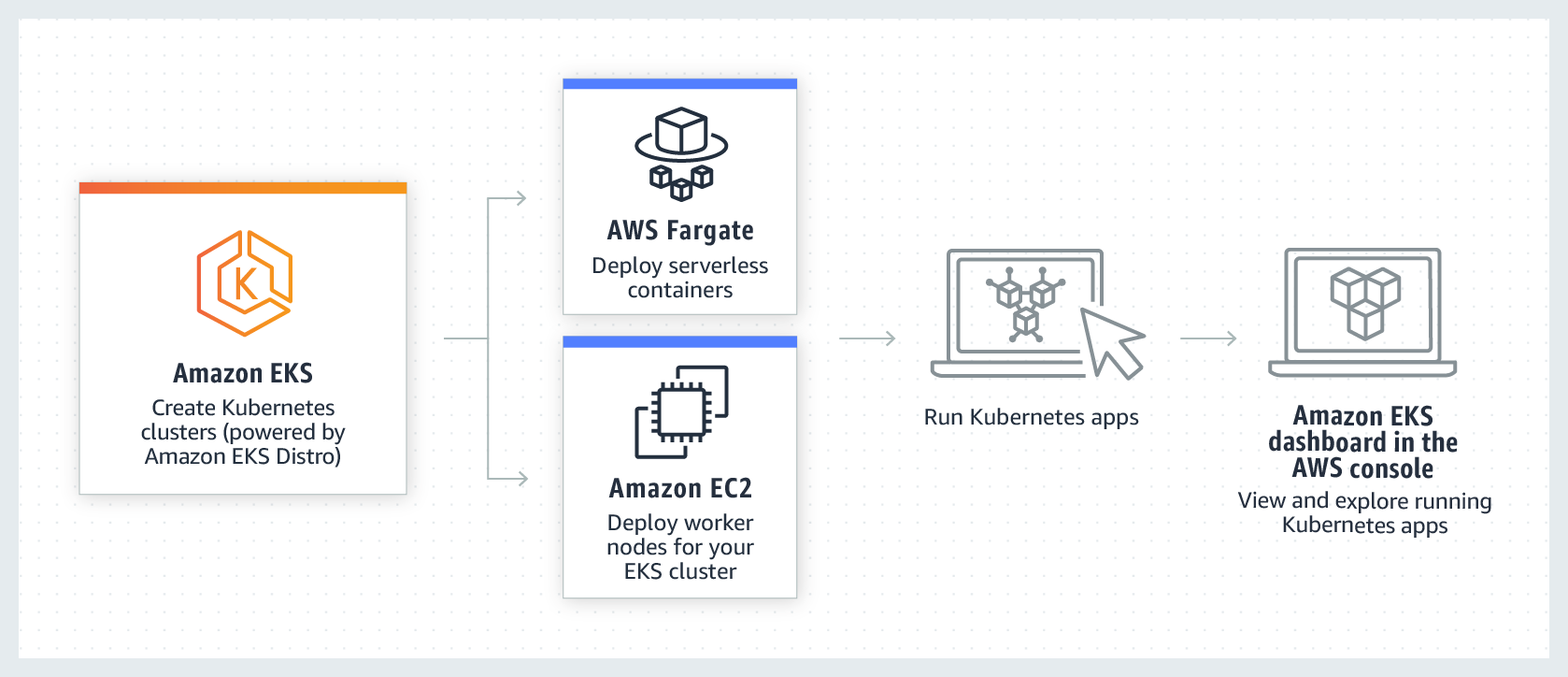Amazon ECS vs EKS: Which Container Service to Use

Containers are a further abstraction of software computing beyond virtual machines – and unlike physical computers, there’s no way to hold them in your hands. Amazon provides two choices for container orchestration: one proprietary to AWS and the other based on open source. So, what sets these two options apart?
What is Container Orchestration?
Let’s start with the basics. You may already be familiar with virtual machines (VM). When spinning up VMs, you just need to deal with software, like operating systems and applications. No more dealing with hardware, which makes things easier.
But what if you could simplify even further? What if you could isolate your applications in discrete, self-contained pieces of software? That’s the idea behind containers. You can leave the hardware and operating systems to someone else. Just package your application code, configuration, and dependencies into a discrete bundle. Even better, containers are environment-agnostic, so you can run them anywhere.
However, that doesn’t mean you don’t have to manage anything at all. Like a symphonic orchestra, virtualized container applications can work together in perfect harmony. That is container orchestration.
The most common type of container stems from the Docker open-source platform, and two of the most common container orchestration platforms are Amazon Elastic Container Service and Kubernetes. Amazon’s version of the open-source Kubernetes is Amazon Elastic Kubernetes Service.
What is Elastic Container Service (ECS)?
Amazon Elastic Container Service is a container orchestration service that simplifies the deployment, management, and scaling of containerized applications.
If you want a simple container orchestration service, you can’t go wrong with ECS. You can integrate ECS with a whole host of services in the AWS ecosystem. You can easily deploy and scale ECS with EC2, Outposts, Fargate, Local Zones, and Wavelength. Docker containers in ECS are referred to as tasks, which are defined using JSON templates.
You can run Docker containers as a managed cluster on EC2 instances. With ECS, you can scale your containers with Elastic Load Balancing, and use the technology to create building blocks across your AWS infrastructure. In fact, it's so flexible it is impossible to outline all the use cases a creative developer might design or the workloads they might call on ECS to carry.
What is Elastic Kubernetes Service (EKS)?
Amazon Elastic Kubernetes service provides container orchestration, either in the cloud or on-premises, using the open-source Kubernetes platform.
The ubiquity of Kubernetes means that developers don’t have to start from scratch when adopting the AWS cloud. What Kubernetes may lack in simplicity, it makes up for in flexibility and broad functionality. Another advantage of EKS is the large community where you can find support and guidance to help with Kubernetes deployment and management.
Those with Kubernetes containers running in other environments may want to stick with EKS. You can either migrate them to Amazon EKS or run them in a hybrid environment. It’s not a bad idea to continue with Kubernetes if you already have fully developed Kubernetes container solutions on-premises or in another cloud infrastructure.
Fargate and Elastic Container Registry
If you don’t want to manage the underlying cloud infrastructure, you have another option. Amazon Fargate is a fully managed serverless compute engine for containers that leaves the server management to AWS. Both ECS and EKS are compatible with Fargate; you just need to configure it when you create your containers.
Amazon Elastic Container Registry (ECR) is a repository for hosting container images and applications for deployment anywhere. It’s a great way to streamline your deployment workloads.
ECS vs EKS: Final Thoughts
For those of us who don’t come from a development background, the idea of coding applications can seem daunting. The good news is there are diverse skill sets in IT and cloud computing, and no one has to know it all. But everyone who logs into the AWS console should have some concept of the broad strokes of AWS container orchestration.
Key distinctions between ECS and EKS include:
ECS is proprietary to AWS, while EKS is based on an open-source platform.
ECS is fully integrated with many AWS resources, and it is easier to manage within the AWS environment.
EKS may seem more complex, but it also offers many options, and there are plenty of people who can help you with it.
Both ECS and EKS are fully managed and can go serverless with Fargate.
We have shown you the view from 30,000 feet. If you're feeling inspired and eager, take your next steps by preparing for an AWS certification.
Not a CBT Nuggets subscriber? Sign up for a free week.
delivered to your inbox.
By submitting this form you agree to receive marketing emails from CBT Nuggets and that you have read, understood and are able to consent to our privacy policy.

